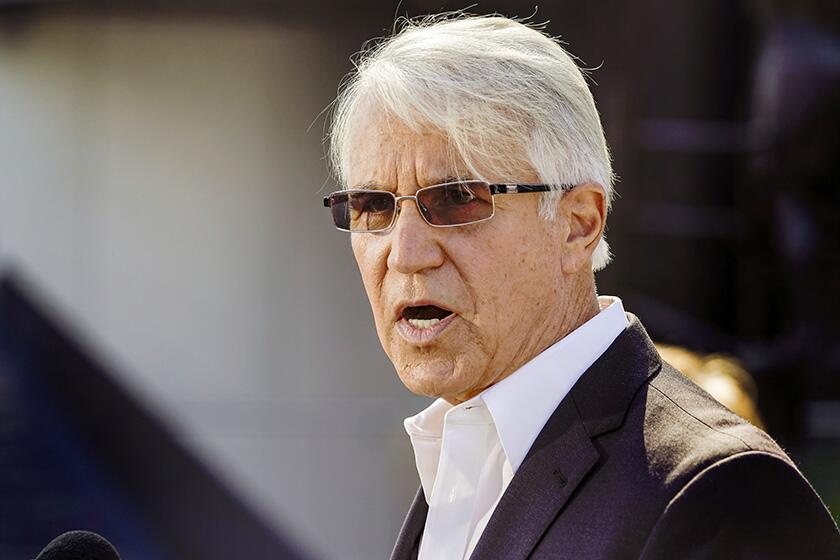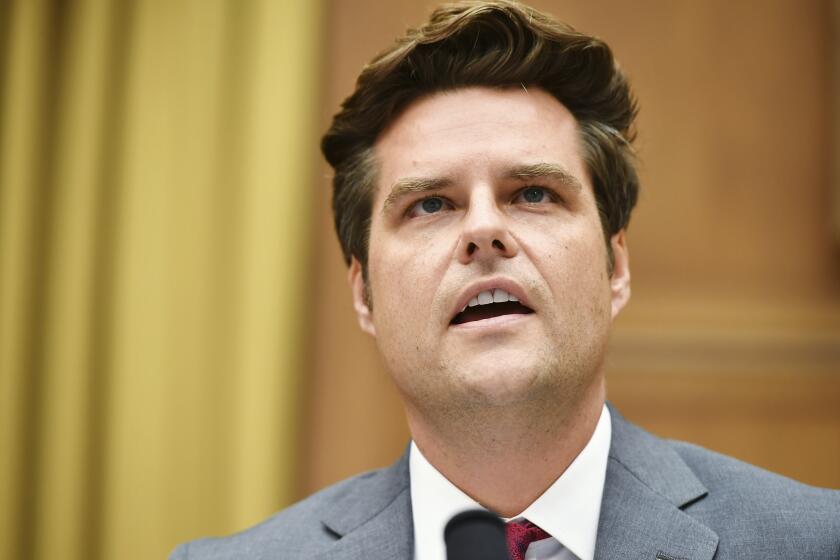Your car will soon be smarter than you. But can you trust it?
Just think of it — in a few years, our cars will be able to talk to one another.
What’ll they be saying? Certainly not the kind of things we humans now say to one another on the road, words that you can’t hear in the traffic roar but can’t mistake on other drivers’ lips.
Your car will be talking its own lingo to the cars around you, saying, in Ford-speak, things like “we are changing lanes; please maintain speed and distance” or “the car ahead of us just slammed on its brakes, time to do the same.”
When the technology is up and ready, the Obama administration wants all new cars to go “smart.”
Cars that can beep out how fast they’re going and which way they’re going as often as 10 times a second; cars that can chat up stop signs, keep a virtual eye out for cyclists and pedestrians, and tell you to turn on the windshield wipers, dummy.
And accidents — most of them, anyway — could be a thing of the past. The 30,000-plus lives lost every year in traffic crashes could be spared.
But that’s way in the future. First, someone has to invent all of this car chat technology, and the FCC has to figure out how to make sure such a data spectrum is available and workable.
And then there are the privacy worries, and that extends to hacking. All these smart gadgets, from your refrigerator to your electric meter, let you boss around inanimate objects from afar: You can tell your fridge to make more ice cubes or let your air conditioner know it’s time to shut off.
But so, conceivably, can anyone else.
And if every car is a smart car, the potential for mayhem, malice and havoc if someone were to hack into them would make Carmageddon look like an orderly parade of pedal cars. The requirement for secure or encrypted smart systems has to be right there in the driver’s seat with the mandate to install the technology.
West Virginia Democratic Sen. Jay Rockefeller told Politico that he’s happy about the “life-saving potential” but that he wants to ensure there are “strong security and privacy measures.” Over in the House, Colorado Democrat Diana DeGette and Texas Republican Joe Barton, who co-chair the privacy caucus, agree that “Americans must have confidence that their privacy and personal data is protected under any mandatory connected vehicle program.”
Now, I sure don’t want my car ratting me out; if I’m going to fight a traffic ticket, will the court be able to summon my car’s smartchip to testify against me? Insurance companies are already embracing “telematics,” sensors that record your driving habits in exchange for discounts on car insurance. You can see where that’s going, can’t you?
It’s getting a bit late in the day, though, for complaints from people who regularly fork over huge amounts of personal information about themselves online, willy nilly, and gobble up every online consumer offer that presents itself, but profess to be appalled that “the government” would insist that all cars eventually become “smart.” Smarter than we are, to save us from our own worst driving habits.
Once that happens, then in 50 or 100 years’ time, Americans will be completely flummoxed at those antique New Yorker cartoons and those news stories of yore. What the heck, they will wonder, is a “fender bender”?
ALSO:
Alyssa Milano, media actorvist
L.A. and .NY.: two new mayors, but two different agendas
Union chief Brian D’Arcy: It’s time to “clear the air” on DWP trusts
Follow Patt Morrison on Twitter @pattmlatimes
More to Read
A cure for the common opinion
Get thought-provoking perspectives with our weekly newsletter.
You may occasionally receive promotional content from the Los Angeles Times.











